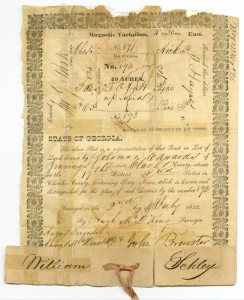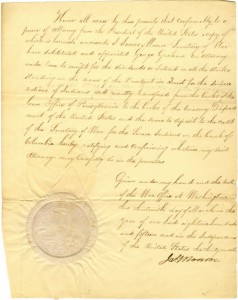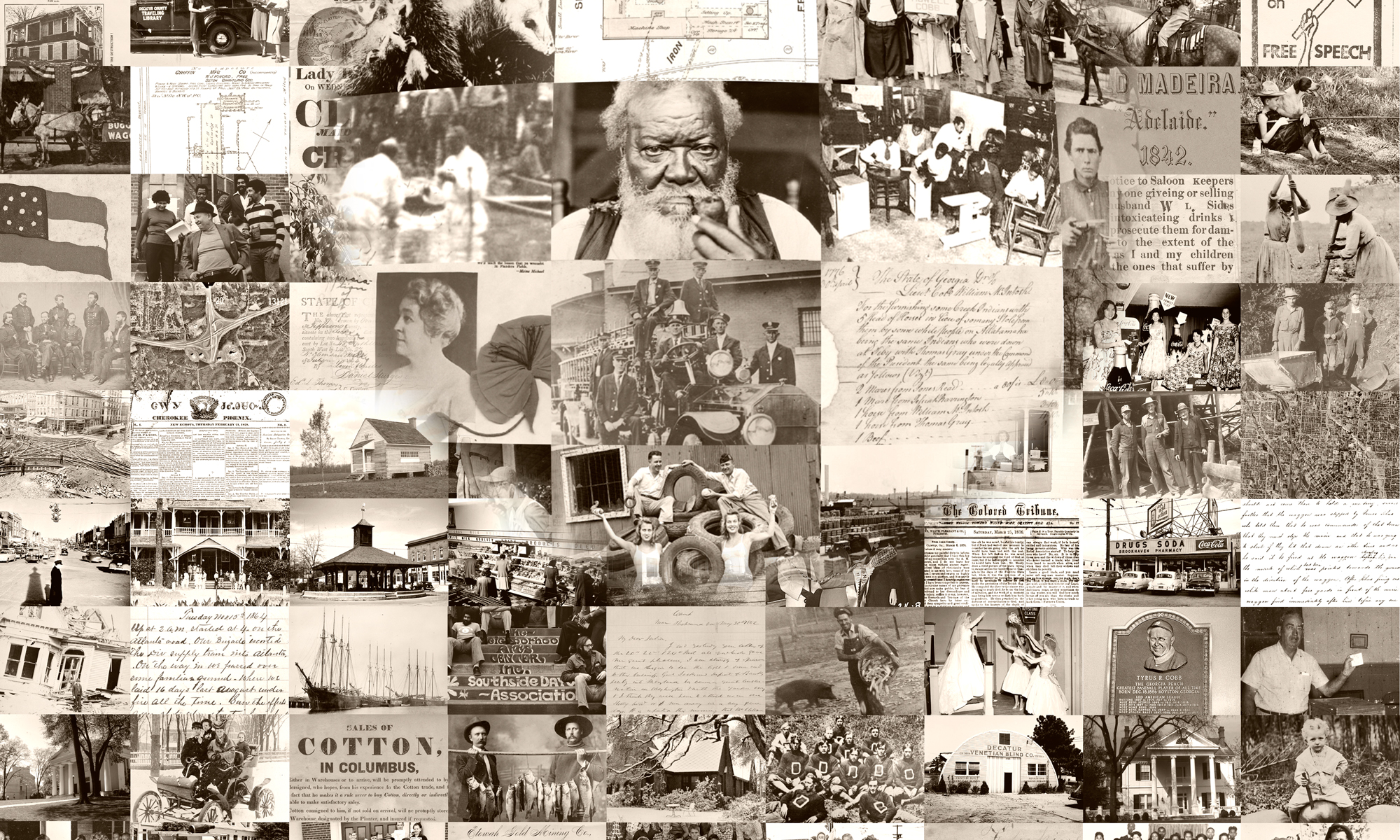
On October 30th, President Obama proclaimed November as National Native American Heritage Month.
According to the National Congress of American Indians, Native American Heritage Month “is a time to celebrate rich and diverse cultures, traditions, and histories and to acknowledge the important contributions of Native people. Heritage Month is also an opportune time to educate the general public about tribes, to raise a general awareness about the unique challenges Native people have faced both historically and in the present, and the ways in which tribal citizens have worked to conquer these challenges.”
An example of those challenges took place during the early 1830s, when the Georgia legislature passed laws that nullified existing Cherokee law and government in order to take over Cherokee land and present it to white Georgia farmers through a land grant lottery system. You can read more about the Georgia land lottery system and the Cherokee Removal in the New Georgia Encyclopedia.
In the DLG, the Cecil Haralson Collection from the Smyrna Public Library, and the Cherokee Regional Library System Collection include examples of numerous Cherokee land grants. The Cherokee Indians Relocation Papers collection from our partners at the Georgia Historical Society provides more information about Cherokee displacement and relocation.

Cherokee Indians Relocation Papers, Georgia Historical Society.
The Cherokee Indians Relocation Papers collection consists of correspondence, a power of attorney, and statements by The Rising Fawn and The Flute (or Old Turkey), two Cherokee men. The correspondence includes a letter from Joseph McMill to John C. Calhoun, Secretary of War, regarding the removal of native Americans to Arkansas and to the Agency; another letter from McMinn to Calhoun nominating sites to attract merchants and giving a history of the county and its towns; a letter from John Coffee to John H. Eaton, Secretary of War, regarding the boundary line between Georgia and the Cherokee Nation and commenting on a number of people, including Chief McIntosh, as well as discussing outrageous intrusions on Native American territory and their rights on the frontier; a letter from Wilson Lumpkin written from New Echota, withdrawing his name as a candidate for Electors of President and Vice-President and stating that he cannot serve in this position while acting as Commissioner for settling claims under the Cherokee treaty; and a letter from John Ridge to General Nat. Smith, Superintendent of Internal Revenue, written from New Echota. The Rising Fawn’s statement, 1829, is regarding the boundary line between Creeks and Cherokees. The Flute’s statement delineates the line between the Creeks and Cherokees as agreed upon at the “old treaty ground” in the presence of U.S. Commissioners. The collection also includes two volumes. The first volume is a record of claims, 1836-1838, kept by Wilson Lumpkin and John Kennedy, Commissioners appointed by the President under the Cherokee Treaty. It includes 423 claims made by the Cherokee Indians of property taken from them. The second volume contains an inventory and sale of property belonging to Native Americans in Floyd County, Georgia. Also included in this collection is a Power of Attorney from James Monroe, Secretary of State, to George Graham, giving him power to receipt for dividends and interest on all stocks in the name of the President in trust for the Seneca Indians. It is signed by Monroe and bears the War Office seal.
We hope that you find these resources aid your observance of Native American Heritage Month 2015.

